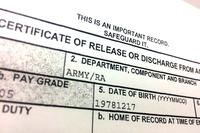With more than 1.8 million civilian employees, the federal government is the nation's biggest employer. It offers positions for everyone from high school graduates to Ph.D.s, while state and local governments employ another eight million people.
You may think every bureaucrat on the planet works inside the Washington, D.C., beltway, but a surprising 84% of federal jobs are actually outside the D.C. metropolitan area. So chances are, there's a good federal job near your home. States with a high concentration of federal jobs include California, Florida, Maryland, Virginia and Texas.
Federal employees also get nice benefits that include 13-26 vacation days (depending on your length of service); 13 sick days; life, disability and health insurance; flex time, work-from-home options; and a pension.
Tallying Federal Finance Jobs
Plus, the federal government loves finance types. It hires accountants and auditors to prepare and analyze financial reports, as well as to review and record revenues and expenses. Auditors investigate agencies and programs, looking for fraud or waste. Tax examiners determine and collect taxes from businesses and citizens. Purchasing agents buy supplies, and management analysts figure out how to do it all better. Some of these positions are even available on a part-time basis.
Slower population growth, an aging federal workforce and growing demand for high-skilled workers have meant that the federal government has been pushing hard to recruit new hires. According to a study released in February 2005, the federal government was aiming to hire 13,000 new accounting, budget and business personnel over the following two-year period. The IRS was expected to account for about 5,000 of those new hires, while the Defense Department was expected to hire about 2,500 people in its contracting and programs divisions. In addition, the Securities and Exchange Commission was actively and visibly recruiting accountants as part of an enhanced enforcement presence, the report says.
Government pay is respectable, if not spectacular. In 2007, accountants employed by the federal government took home an average of $78,665, auditors $83,322, economists $94,098 and statisticians $85,690.
Despite the attraction of federal jobs, states may actually be more likely to hire. The U.S. Department of Labor expects the number of federal jobs to decline by 4.6% through 2016, while state and local government employment is poised to grow about 8% during that same time.
It's Safe
Being a bureaucrat is still one of the fairest and most secure jobs going, at least at the federal level. The federal government tries to be objective in its hiring, and managers are supposed to select the candidate whose knowledge, skills and abilities (KSAs) best match those needed to do the job. Of course, there are ways to get around these requirements, but the federal government is still more objective in its hiring than the private sector. Working for Uncle Sam is a good bet if you're brilliant but partial to plaid jackets, or if you don't fit the mold created by Madison Avenue and, too often, demanded by private employers.
The hiring process for the federal government, as well as many state and local government jobs, is quite different from that of the private sector. Typically, vacancies are announced publicly, along with a list of the required skills, experience and education. You may have to take a written or even a physical exam, especially if you're applying for a law-enforcement position. Each applicant is ranked numerically, and veterans automatically get bonus points.
If you don't fit the bill, you're out. There's no bluffing your way through an interview or charming your way into a position for which you're not qualified. In addition, loan defaults and misdemeanors can derail you.
Don't Get Burned
As you begin looking for the perfect civil-service position, watch out for scams offering to find you federal, state or local government jobs. Remember, federal job information is always free, and if an exam is required, the agency will typically give you a free set of sample questions before the test date. Scammers can be pretty tricky. They'll use names that sound official, such as the U.S. Agency for Career Advancement or Postal Employment Service.
The alarm should sound if a company:
- Implies it's affiliated with the government.
- Refers you to a toll-free number answered by someone who tries to sell you information booklets.
- Operates a toll-free number that refers you to a pay-per-call number for more information.
Find the Right Veteran Job
Whether you want to polish your resume, find veteran job fairs in your area or connect with employers looking to hire veterans, Military.com can help. Subscribe to Military.com to have job postings, guides and advice, and more delivered directly to your inbox.












